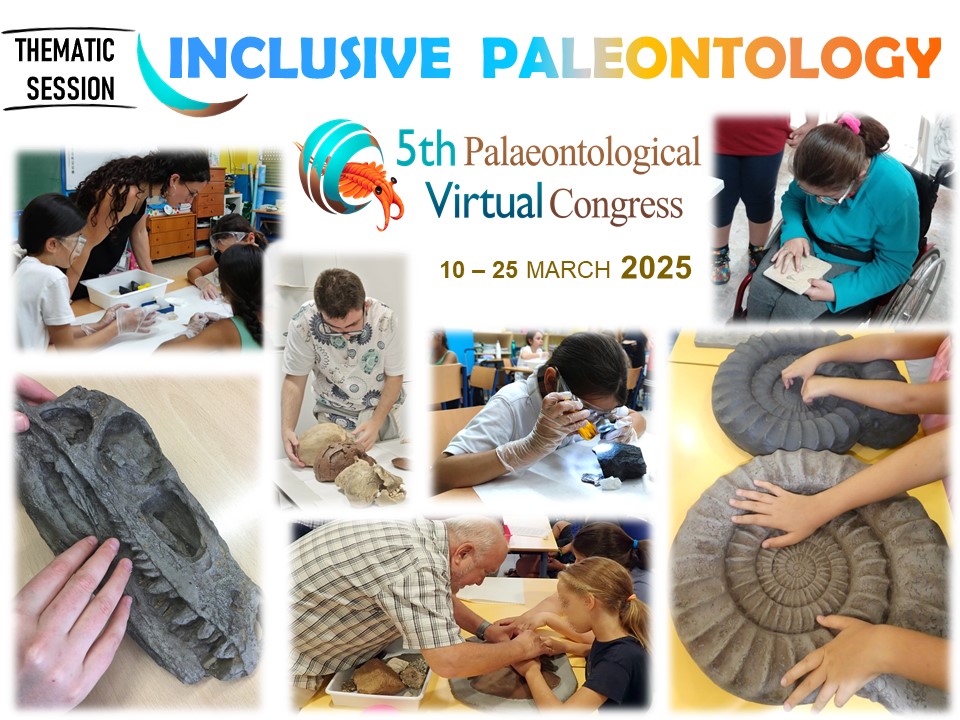Inclusive Paleontology

AUTHORS
Fernando Muñiz Guinea
Departamento de Cristalografía, Mineralogía y Química Agrícola. Universidad de Sevilla, Spain
fmuniz@us.es
Mónica Martín Oria
Departamento de Cristalografía, Mineralogía y Química Agrícola. Universidad de Sevilla, Spain
mmartin28@us.es
Marta Ceballos Aranda
Universidad CEU Fernando III, CEU Universities Facultad de Humanidades, Educación y Deporte Bormujos, Spain
mceballos@ceu.es
Zain Belaústegui Barahona
Departament de Dinàmica de la Terra i de L’Oceà. Institut de Recerca de la Biodiversitat, Universitat de Barcelona, Spain
zbelaustegui@ub.edu
Samuel Ramírez-Cruzado
Grupo de Investigación RNM 293 “Geomorfología Ambiental y Recursos Hídricos”, Universidad de Huelva, Spain
samux96@gmail.com
Abstract
Access to scientific knowledge is a universal and fundamental right. Scientific progress and its interaction with society cannot be considered complete if it does not reach every social group, especially those of people with special educational needs or with different types of functional diversity, such as intellectual, blindness, deaf-blindness. These “barriers” must be broken down to guarantee scientific knowledge transmission and learning, as well as an equal enjoyment of science. Currently, there are many institutions that carry out inclusive activities and experiences with paleontological content adapted to people with functional diversity and/or that consider a universal design in their proposals. The main objective of this “INCLUSIVE PALEONTOLOGY” session is to share experiences adapted to people with functional diversity and carried out by academic institutions, museums, research centres or different associations.
